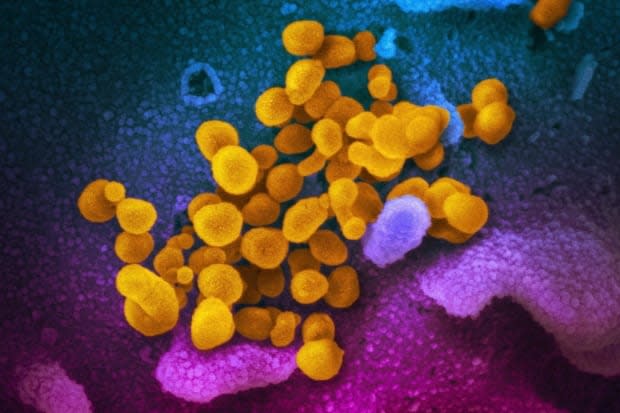How do you become immune to COVID-19? This St. John's immunologist hopes to find out
Dr. Michael Grant hopes to solve a few mysteries the entire world is wondering about by studying Newfoundlanders and Labradorians who have contracted the virus that causes COVID-19.
The key questions are what kind of immunity does your body build to stave off the virus, and how long does it last?
Grant, a professor of immunology at Memorial University, has funding to study these questions for one year, but hopes to continue his work for the next three years.
"It's incredibly important to know — how we're going to deal with a virus that everybody expects will be around for five years," he said.
"We need to know our people who have had the infection and made immunity — are they safe against future infection? We need to know exactly what type of immune responses an effective vaccine needs to induce in order to protect the population."
Newfoundland and Labrador has had 272 confirmed cases of COVID-19 since March. Grant said there's been tremendous response from those patients, but also from another section of the population.
"About half the people who responded are people who believe they may have had COVID-19 before March and so weren't tested," he said.
"We're interested in those people. It will be interesting to find if the virus had been here before March, for sure, and if they have antibodies we'll enrol them in the study and follow them the same as everyone else."
Grant and his partner will recruit as many people as possible who have had the virus and take blood tests. They'll look at the antibody and cellular responses people had to the virus, and how that relates to the severity of the symptoms they suffered.
They'll try to figure out if milder cases of COVID-19 can be attributed to better immune responses, and if a person has to have a severe infection in order to trigger a long-term immune response.
Newfoundland makes good test site
Grant has been an immunologist for 30 years, but found himself on the sidelines when the pandemic first came to the province since his specific expertise was on a different kind of viruses.
He began working with a task force related to COVID-19 testing, however, and that sparked his interest in how the body reacts to the virus.

Grant said St. John's is a great place for a study like this.
"Although there's not that many infections, it's a great population to study because they're concentrated in St. John's mostly, they're very willing to participate in trials, and the one cluster — the Caul's cluster — is one of the biggest clusters in Canada."
He hopes to have an idea of how immunity to the virus works by Christmas, and if a person can remain stably immune to COVID-19 six months after infection.
Read more from CBC Newfoundland and Labrador

